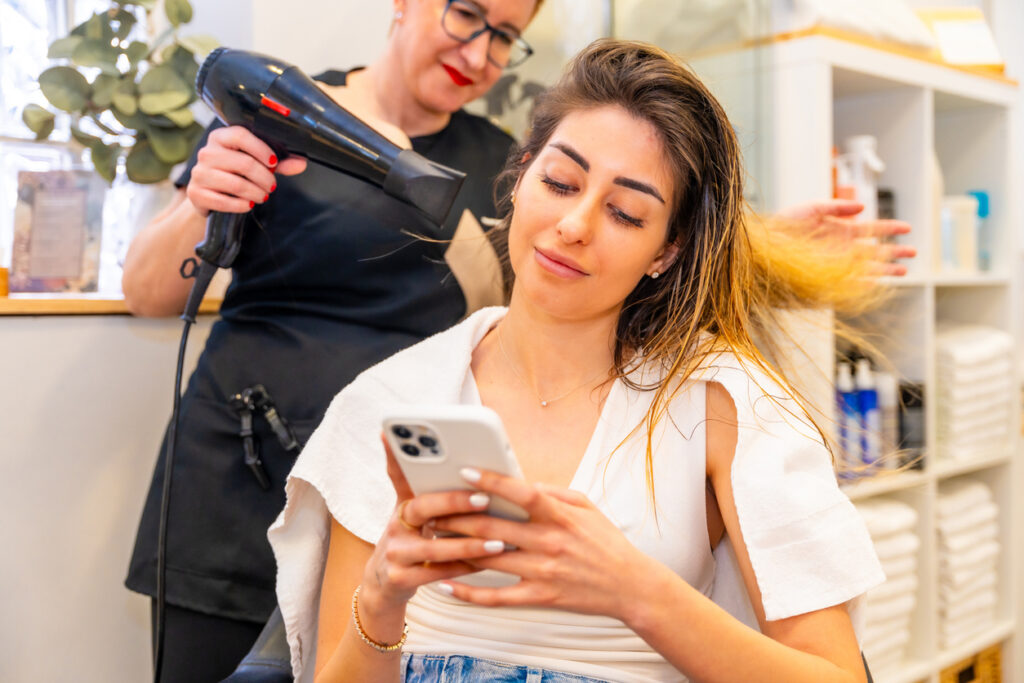Trust is key in any relationship—but what if your partner is secretly snooping?

You keep your phone close, not because you have anything to hide, but because it’s personal. Your messages, photos, and social media hold pieces of your life that should be private—even from your spouse. But sometimes, curiosity, insecurity, or outright control issues lead people to cross the line and snoop through their partner’s phone without permission. And while some do it in obvious ways, others get a little sneakier.
If something feels off, you might not be imagining it. Here are nine sneaky ways your spouse could be secretly checking your phone—and what you can do about it.
1. They casually glance at your screen whenever you unlock it.

It might seem harmless, but some partners make a habit of glancing at your phone every time you open it. Whether you’re responding to a text, checking social media, or pulling up directions, they make sure to steal a quick peek—sometimes pretending they’re not even looking.
Over time, this habit can become a subtle form of control, as reported by Rebecca Hellwell at Vox. They don’t need full access to your phone if they’re constantly catching bits and pieces of your messages. If you notice them doing this often, try tilting your screen away or calling it out directly. A relationship built on trust shouldn’t require constant surveillance.
2. They ask to “borrow” your phone for small things.

A seemingly innocent, “Hey, can I use your phone to look something up?” might not be so innocent after all. If your spouse frequently asks to borrow your phone—even when they have their own—they might be using the opportunity to snoop.
Watch how long they take and what they do with it. If they’re flipping between apps or taking longer than necessary, they could be scanning for notifications or checking your browsing history. If this happens often, suggest they use their own phone instead. A simple boundary like that can reveal whether their request was really about convenience—or something else, according to Thriving Center of Psychology.
3. They “accidentally” open your notifications when your phone is nearby.

You leave your phone on the table, and suddenly, their hand is on it, swiping away a notification. “Oh, I thought it was my phone,” they might say. But how many times can that excuse fly before it starts looking suspicious?
This is a sneaky way to check who’s messaging you without directly snooping. If this happens more than once, it’s probably not an accident but is a sly way to check up on you, as stated by Fjolla Arifi at Treat My Ocd. Keeping notifications private or turning off message previews can stop this tactic in its tracks.
4. They wait until you fall asleep to check your phone.

If your spouse has ever suggested leaving your phone unlocked while you sleep, that’s a major red flag. Some snoopers wait until their partner is deep in dreamland before sneaking a peek at messages, emails, or call logs.
This is one of the most invasive tactics, and if you suspect it, consider using Face ID, fingerprint locks, or even keeping your phone on your side of the bed. If they’re willing to cross that boundary while you’re unconscious, there’s a bigger trust issue that needs addressing.
5. They track your screen time and app usage.

Some phones have built-in screen time features that let you see which apps have been used and for how long. A sneaky spouse might take advantage of this, scrolling through your app history to see if you’ve been on dating sites, chatting with someone, or even just spending too much time on social media.
While this isn’t full-blown snooping, it’s still an invasion of privacy. If you notice them making oddly specific comments about your phone habits, they might be checking where you’ve been spending your screen time. Turning off shared usage reports or locking your settings can help stop this.
6. They set up alerts or notifications on your accounts.

A spouse who really wants to keep tabs on you might take it a step further by setting up email or text alerts on your social media or bank accounts. This way, they get a notification every time you log in, post something, or even make a purchase.
If you start getting unexpected security alerts or notice changes to your account settings, it might be time to check if someone has added their contact info to your notifications. Resetting passwords and reviewing security settings can help shut down this sneaky tactic.
7. They test random passcodes when you’re not looking.

If your partner has ever casually asked about your favorite numbers, your childhood pet’s name, or other personal details, they might be fishing for password clues. Some will even attempt different passcodes when you leave your phone unattended, hoping to stumble upon the right one.
If you suspect this, change your password to something they wouldn’t guess—like a completely random combination. Better yet, use biometrics like Face ID or fingerprint scanning to ensure only you can access your device.
8. They use voice assistants to read messages out loud.

Siri, Google Assistant, and Alexa can be helpful—but they can also be used to spy. A spouse who knows what they’re doing might activate your voice assistant and ask it to read messages, check call history, or even open apps.
To prevent this, disable voice assistant access from your lock screen. That way, no one can use it unless your phone is unlocked. It’s a simple step, but it can stop a nosy spouse from listening in on your digital life.
9. They go through shared devices linked to your accounts.

If you have a shared tablet, laptop, or smart home device, your partner might be using it to peek at your messages, call logs, or even saved passwords. Some messaging apps sync across multiple devices, meaning they could be reading your conversations without ever touching your phone.
Check your connected devices and sign out of anything linked to a shared account. If you’re unsure whether your messages are being accessed elsewhere, review your login history and remove any suspicious activity. Privacy isn’t about hiding things—it’s about maintaining your personal space.
